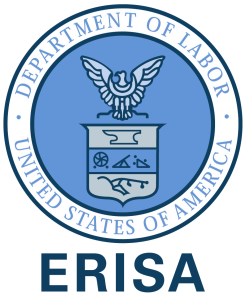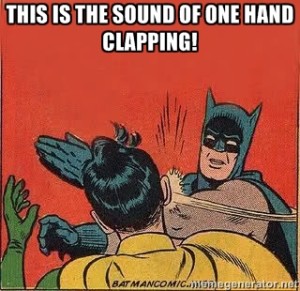 The plaintiffs in Wendt v. 24 Hour Fitness USA, Inc. complained about several violations of the Texas Health Spa Act in the form membership contract of 24 Hour Fitness. Noting the specific remedies provided by that Act, the Fifth Circuit held: “We agree with the district court that Plaintiffs suffered no injury-in-fact. 24 Hour’s alleged violations of the Act did not harm Plaintiffs in any way. To the contrary, 24 Hour gave Plaintiffs exactly what they paid for: access to a gym. Plaintiffs therefore lack Article III standing, and the district court
The plaintiffs in Wendt v. 24 Hour Fitness USA, Inc. complained about several violations of the Texas Health Spa Act in the form membership contract of 24 Hour Fitness. Noting the specific remedies provided by that Act, the Fifth Circuit held: “We agree with the district court that Plaintiffs suffered no injury-in-fact. 24 Hour’s alleged violations of the Act did not harm Plaintiffs in any way. To the contrary, 24 Hour gave Plaintiffs exactly what they paid for: access to a gym. Plaintiffs therefore lack Article III standing, and the district court
properly dismissed the case.” No. 15-10309 (April 13, 2016).
 The parties in DFW Airport Board v. Inet Aiport Systems sued each other about problems in the installation of rooftop air conditioning units. Key issues were “who breached first” and whether the parties had a meeting of the minds about a solution; the evidence consisted of a fast-moving, complicated exchange of emails and letters. The Fifth Circuit reversed a summary judgment, noting: “In these circumstances the Contract required both parties to participate in resolving defects. Any contractual modification or change order required the mutual assent of the parties, and questions of mutual assent are fact based. Sifting through the evidence to determine whether the parties reached agreement on a contractual modification is a task ill-suited for summary judgment on this record.” Nos. 15-10390, 15-10600 (April 12, 2016).
The parties in DFW Airport Board v. Inet Aiport Systems sued each other about problems in the installation of rooftop air conditioning units. Key issues were “who breached first” and whether the parties had a meeting of the minds about a solution; the evidence consisted of a fast-moving, complicated exchange of emails and letters. The Fifth Circuit reversed a summary judgment, noting: “In these circumstances the Contract required both parties to participate in resolving defects. Any contractual modification or change order required the mutual assent of the parties, and questions of mutual assent are fact based. Sifting through the evidence to determine whether the parties reached agreement on a contractual modification is a task ill-suited for summary judgment on this record.” Nos. 15-10390, 15-10600 (April 12, 2016).
 Mutual of Omaha obtained a summary judgment against Prospect, who complained under Fed. R. Civ. P. 56(d) that it needed “additional electronic discovery related to allegedly backdated documents produced by Mutual.” The Fifth Circuit declined to enter that wild kingdom, observing: “[T]he magistrate judge denied Prospect’s motion to compel that electronic discovery, and Prospect did not object to the denial. That means that the electronic discovery was not ‘susceptible of collection within a reasonable time frame’ —Prospect was never
Mutual of Omaha obtained a summary judgment against Prospect, who complained under Fed. R. Civ. P. 56(d) that it needed “additional electronic discovery related to allegedly backdated documents produced by Mutual.” The Fifth Circuit declined to enter that wild kingdom, observing: “[T]he magistrate judge denied Prospect’s motion to compel that electronic discovery, and Prospect did not object to the denial. That means that the electronic discovery was not ‘susceptible of collection within a reasonable time frame’ —Prospect was never
going to get it—so it cannot support Prospect’s Rule 56(d) motion.” Prospect Capital v. Mutual of Omaha, No. 15-20345 (April 13, 2016).
 In Burell v. Prudential Ins. Co., the Fifth Circuit addressed one of the many ERISA summary judgment cases in which it reviews a plan administrator’s work for abuse of discretion – or, in the somewhat cryptic language of ERISA: “our de novo review of [the] summary judgment ruling will also apply the abuse of discretion standard.” The panel affirmed over a dissent, which is not typical in such cases. It noted disagreement among the doctors who reviewed the claim, as well as allegations that the administrator did not follow its own review procedures, and would have found a fact issue for trial based on those matters. No. 15-50035 (April 11, 2016).
In Burell v. Prudential Ins. Co., the Fifth Circuit addressed one of the many ERISA summary judgment cases in which it reviews a plan administrator’s work for abuse of discretion – or, in the somewhat cryptic language of ERISA: “our de novo review of [the] summary judgment ruling will also apply the abuse of discretion standard.” The panel affirmed over a dissent, which is not typical in such cases. It noted disagreement among the doctors who reviewed the claim, as well as allegations that the administrator did not follow its own review procedures, and would have found a fact issue for trial based on those matters. No. 15-50035 (April 11, 2016).
 The issue in Seacor Holdings v. Mason was whether a party had “informally” opted out of a class action related to the Deepwater Horizon disaster. Acknowledging that a party can opt out of a class without strictly complying with specified procedures, especially if the party is unsophisticated and unrepresented by legal counsel, the Fifth Circuit found no abuse of discretion in not finding an opt-out here. “The gargantuan size and extraordinary complexity of this litigation therefore supports the district court’s decision. . . . . When the district court approved the Agreement, it noted the class had potentially 200,000 members and that over 1,700 individuals sent opt-out requests to the claims administrator. Given the size and complexity of this MDL proceeding, the court and parties should not have to intuit an opt out from vague statements made in one of thousands of filings before the court. To hold otherwise would allow class members to make ambiguous statements and motions while waiting to see if the outcome of the class action is favorable.” No. 15-30597 (April 6, 2016).
The issue in Seacor Holdings v. Mason was whether a party had “informally” opted out of a class action related to the Deepwater Horizon disaster. Acknowledging that a party can opt out of a class without strictly complying with specified procedures, especially if the party is unsophisticated and unrepresented by legal counsel, the Fifth Circuit found no abuse of discretion in not finding an opt-out here. “The gargantuan size and extraordinary complexity of this litigation therefore supports the district court’s decision. . . . . When the district court approved the Agreement, it noted the class had potentially 200,000 members and that over 1,700 individuals sent opt-out requests to the claims administrator. Given the size and complexity of this MDL proceeding, the court and parties should not have to intuit an opt out from vague statements made in one of thousands of filings before the court. To hold otherwise would allow class members to make ambiguous statements and motions while waiting to see if the outcome of the class action is favorable.” No. 15-30597 (April 6, 2016).
 “Here, the appellants’ notice of appeal specifically designated only the district court’s September 17, 2015, order granting summary judgment for appeal, and it reveals no implied challenge to the magistrate judge’s May 2015 ruling on their motion to reset deadlines or the district court’s August 2015 ruling on their motion for an extension of time. These unmentioned orders therefore fall outside the scope of the appellants’ notice of appeal, and we lack jurisdiction to review them.” Underwood v. General Motors, No. 15-30831 (April 5, 2016, unpublished).
“Here, the appellants’ notice of appeal specifically designated only the district court’s September 17, 2015, order granting summary judgment for appeal, and it reveals no implied challenge to the magistrate judge’s May 2015 ruling on their motion to reset deadlines or the district court’s August 2015 ruling on their motion for an extension of time. These unmentioned orders therefore fall outside the scope of the appellants’ notice of appeal, and we lack jurisdiction to review them.” Underwood v. General Motors, No. 15-30831 (April 5, 2016, unpublished).
 The attorney general of Mississippi served Google with a broad administrative subpoena about Google’s efforts to reduce copyright infringement, drug trafficking, and other undesirable uses of its search technology. Google responded with a federal lawsuit seeking an injunction against the subpoena and further proceedings about it. The Fifth Circuit found federal jurisdiction, as “Google’s claims seeking to enjoin a state officer’s alleged violations of federal law invoke federal-question jurisdiction,” and found no reason to abstain under Younger v. Harris. But the Court went on to find that the action was not yet ripe: “there is no current consequence for resisting the subpoena and the same challenges raised in the federal suit could be litigated in state court.” Google, Inc. v. Hood, No. 15-60205 (April 8, 2016). Accordingly, it vacated the injunction granted by the trial court, and remanded with instructions to dismiss.
The attorney general of Mississippi served Google with a broad administrative subpoena about Google’s efforts to reduce copyright infringement, drug trafficking, and other undesirable uses of its search technology. Google responded with a federal lawsuit seeking an injunction against the subpoena and further proceedings about it. The Fifth Circuit found federal jurisdiction, as “Google’s claims seeking to enjoin a state officer’s alleged violations of federal law invoke federal-question jurisdiction,” and found no reason to abstain under Younger v. Harris. But the Court went on to find that the action was not yet ripe: “there is no current consequence for resisting the subpoena and the same challenges raised in the federal suit could be litigated in state court.” Google, Inc. v. Hood, No. 15-60205 (April 8, 2016). Accordingly, it vacated the injunction granted by the trial court, and remanded with instructions to dismiss.
 Appellant “Why Not LLC” (unfortunately, not the appellee, despite the perfect name for that side of an appeal) complained of a frozen yogurt franchise termination by Yumilicious. The district court granted summary judgment on Why Not’s many causes of action, and the Fifth Circuit affirmed, principally on grounds relating to Yumilicious’s lack of intent and the terms of the franchise agreement. In the course of doing so, the opinion offers a primer on commonly-litigated issues about basic business torts in Texas. The Court observed that Why Not’s pleading had presented “a large serving of claims and counterclaims piled precariously together,” and concluded: “This saccharine swirl of counterclaims suggests that litigants, like fro-yo fans, should seek quality over quantity.” Yumilicious v. Barrie, No. 15-10508 (April 6, 2016). (The opinion is silent as to whether Why Not has any relation to the left fielder on Bud Abbott’s famous baseball team.)
Appellant “Why Not LLC” (unfortunately, not the appellee, despite the perfect name for that side of an appeal) complained of a frozen yogurt franchise termination by Yumilicious. The district court granted summary judgment on Why Not’s many causes of action, and the Fifth Circuit affirmed, principally on grounds relating to Yumilicious’s lack of intent and the terms of the franchise agreement. In the course of doing so, the opinion offers a primer on commonly-litigated issues about basic business torts in Texas. The Court observed that Why Not’s pleading had presented “a large serving of claims and counterclaims piled precariously together,” and concluded: “This saccharine swirl of counterclaims suggests that litigants, like fro-yo fans, should seek quality over quantity.” Yumilicious v. Barrie, No. 15-10508 (April 6, 2016). (The opinion is silent as to whether Why Not has any relation to the left fielder on Bud Abbott’s famous baseball team.)
 A clear disability — a child rendered incompetent by a debilitating medical condition — gave rise to complicated standing and capacity issues in Rideau v. Keller ISD, No. 15-10095 (April 5, 2016). The child, the beneficiary of a trust established in his behalf as a result of the incident that caused his condition, sought damages from his school district for mistreatment by his special education teacher. The Fifth Circuit found that the child had standing to seek recovery for his home care expenses, notwithstanding “[t]he existence of a third-party payor in the form of a trust created by a prior tortfeasor.” The Court then agreed with the defendant that Texas law gave the bank who administered the child’s trust the exclusive right to file suit for other damages, and not his parents. It concluded, however, that this problem had been cured by the bank’s ratification of the parents’ action under the rarely-applied but very practical Fed. R. Civ. P. 17(a)(3). (I congratulate my LPCH colleague John Guild on his work for the plaintiffs in this case.)
A clear disability — a child rendered incompetent by a debilitating medical condition — gave rise to complicated standing and capacity issues in Rideau v. Keller ISD, No. 15-10095 (April 5, 2016). The child, the beneficiary of a trust established in his behalf as a result of the incident that caused his condition, sought damages from his school district for mistreatment by his special education teacher. The Fifth Circuit found that the child had standing to seek recovery for his home care expenses, notwithstanding “[t]he existence of a third-party payor in the form of a trust created by a prior tortfeasor.” The Court then agreed with the defendant that Texas law gave the bank who administered the child’s trust the exclusive right to file suit for other damages, and not his parents. It concluded, however, that this problem had been cured by the bank’s ratification of the parents’ action under the rarely-applied but very practical Fed. R. Civ. P. 17(a)(3). (I congratulate my LPCH colleague John Guild on his work for the plaintiffs in this case.)
 The plaintiffs in Hall v. Phenix Investigations were also defendants in contentious state court fraudulent transfer litigation. They alleged that a private investigation firm violated the FCRA in its work in that litigation. The Fifth Circuit affirmed the dismissal of the case on the pleadings, finding that “the report was commissioned for use in ongoing commercial litigation, which is not a qualifying purpose of the FCRA even it may potentially be used for such a purpose someday. And, “[e]ven assuming that filing a lawsuit to collect on a judgment could constitute the collection of a consumer account within the meaning of the FCRA, there is no collection of a consumer account here because the judgment arose from a commercial transaction.” No. 15-10533 (March 29, 2016, unpublished).
The plaintiffs in Hall v. Phenix Investigations were also defendants in contentious state court fraudulent transfer litigation. They alleged that a private investigation firm violated the FCRA in its work in that litigation. The Fifth Circuit affirmed the dismissal of the case on the pleadings, finding that “the report was commissioned for use in ongoing commercial litigation, which is not a qualifying purpose of the FCRA even it may potentially be used for such a purpose someday. And, “[e]ven assuming that filing a lawsuit to collect on a judgment could constitute the collection of a consumer account within the meaning of the FCRA, there is no collection of a consumer account here because the judgment arose from a commercial transaction.” No. 15-10533 (March 29, 2016, unpublished).
In the second case in a week about the seizure of maritime fuel supplies, the Fifth Circuit addressed a recurring issue in international business transactions — the incorporation of a  general set of standards by reference in a less-detailed, but party-specific contract. Applying Singapore law to the substantial fuel bunkers of the M/V BULK JULIANA (right), the Court concluded: “Although [the expert’s] testimony did not address the bunker delivery notes, he affirmed the incorporation of the General Terms by reference to the bunker confirmation email, which provided all the relevant terms and conditions of the contract. We recognize that neither Bulk Juliana nor the vessel was a party to the bunker confirmation email, and therefore did not have
general set of standards by reference in a less-detailed, but party-specific contract. Applying Singapore law to the substantial fuel bunkers of the M/V BULK JULIANA (right), the Court concluded: “Although [the expert’s] testimony did not address the bunker delivery notes, he affirmed the incorporation of the General Terms by reference to the bunker confirmation email, which provided all the relevant terms and conditions of the contract. We recognize that neither Bulk Juliana nor the vessel was a party to the bunker confirmation email, and therefore did not have  access to and/or awareness of the specific document at all material times. [The expert], however, testified about the ready availability of the contractual terms via the internet, as well as the prevalence of the practices employed here with respect to sales of necessaries in the shipping industry. Importantly, [he] pointed out that [Plaintiff’s] incorporation of the General Terms was ‘commonplace in the bunkering industry worldwide, and ought to be in the contemplation of ship operators and ship-owners such as [Bulk Juliana].'” World Fuel Services v. Bulk Juliana, Ltd., No. 15-30239 (April 1, 2016).
access to and/or awareness of the specific document at all material times. [The expert], however, testified about the ready availability of the contractual terms via the internet, as well as the prevalence of the practices employed here with respect to sales of necessaries in the shipping industry. Importantly, [he] pointed out that [Plaintiff’s] incorporation of the General Terms was ‘commonplace in the bunkering industry worldwide, and ought to be in the contemplation of ship operators and ship-owners such as [Bulk Juliana].'” World Fuel Services v. Bulk Juliana, Ltd., No. 15-30239 (April 1, 2016).
 After a bad start in the Fifth Circuit, the Golf Channel ultimately prevailed in the Texas Supreme Court in a fraudulent transfer case against the Allen Stanford receiver. The Channel ran advertisements for Stanford’s golf business in exchange for payments of roughly $6 million. The issue was whether the “value” of those ads, for purposes of the Channel’s defenses under TUFTA, “became valueless based on the true nature of the debtor’s business as a Ponzi scheme or the debtor’s subjective reasons for procuring otherwise lawful services.” The Texas Supreme Court ruled for the Channel, finding that “TUFTA does not contain separate standards for assessing ‘value’ and ‘reasonably equivalent’ value based on whether the debtor was operating a Ponzi scheme. . . . “[V]alue must be determined objectively at the time of the transfer and in relation to the individual exchange at hand rather than viewed in the context of the debtor’s entire enterprise, . . . the debtor’s perspective, or . . . a retrospective evaluation of the impact it had on the debtor’s estate.” Janvey v. Golf Channel, No. 15-0489 (Tex. Apr. 1, 2016).
After a bad start in the Fifth Circuit, the Golf Channel ultimately prevailed in the Texas Supreme Court in a fraudulent transfer case against the Allen Stanford receiver. The Channel ran advertisements for Stanford’s golf business in exchange for payments of roughly $6 million. The issue was whether the “value” of those ads, for purposes of the Channel’s defenses under TUFTA, “became valueless based on the true nature of the debtor’s business as a Ponzi scheme or the debtor’s subjective reasons for procuring otherwise lawful services.” The Texas Supreme Court ruled for the Channel, finding that “TUFTA does not contain separate standards for assessing ‘value’ and ‘reasonably equivalent’ value based on whether the debtor was operating a Ponzi scheme. . . . “[V]alue must be determined objectively at the time of the transfer and in relation to the individual exchange at hand rather than viewed in the context of the debtor’s entire enterprise, . . . the debtor’s perspective, or . . . a retrospective evaluation of the impact it had on the debtor’s estate.” Janvey v. Golf Channel, No. 15-0489 (Tex. Apr. 1, 2016).
 Malin Ship Repair sought to attach boat fuel (“bunkers” in admiralty parlance) of defendant OSA, and thus gain personal jurisdiction over OSA in a Texas federal court. As of the attachment date, OSA had taken delivery of the boat and the fuel on it, but had not paid for the fuel or been invoiced for it. Under the UCC, title would have passed under delivery. Under the common law, the answer turns on the parties’ intent, and the Court concluded that “the parties contemplated a credit transaction.” Thus, title had passed to OSA and the attachment was sufficient to confer personal jurisdiction under the applicable admiralty rule. Malin Int’l Ship Repair & Drydock v. Oceanografia, S.A. de C.V., No. 15-40463 (March 23, 2016).
Malin Ship Repair sought to attach boat fuel (“bunkers” in admiralty parlance) of defendant OSA, and thus gain personal jurisdiction over OSA in a Texas federal court. As of the attachment date, OSA had taken delivery of the boat and the fuel on it, but had not paid for the fuel or been invoiced for it. Under the UCC, title would have passed under delivery. Under the common law, the answer turns on the parties’ intent, and the Court concluded that “the parties contemplated a credit transaction.” Thus, title had passed to OSA and the attachment was sufficient to confer personal jurisdiction under the applicable admiralty rule. Malin Int’l Ship Repair & Drydock v. Oceanografia, S.A. de C.V., No. 15-40463 (March 23, 2016).
 Alleging that a toe joint implant did not work properly, Flagg sued “Manufacturing Defendants” (who built the implant) and “Medical Defendants” (who surgically installed it in Flagg’s foot.) The Manufacturing Defendants were diverse from Flagg, a Louisiana citizen, while the Medical Defendants were not.
Alleging that a toe joint implant did not work properly, Flagg sued “Manufacturing Defendants” (who built the implant) and “Medical Defendants” (who surgically installed it in Flagg’s foot.) The Manufacturing Defendants were diverse from Flagg, a Louisiana citizen, while the Medical Defendants were not.
Affirming the district court while reversing the panel, an 11-4 en banc opinion holds “the plaintiff had improperly joined the non-diverse defendants because [he] has not exhausted his claims against those parties as required by statute.” That Louisiana statute requires review by a “medical review panel” before suit is filed against a health care provider; the Fifth Circuit concluded that pursuant to it, “there is no doubt that the state court would have been required to dismiss the Medical Defendants from the case,” as no such review had occurred at the time of removal. A vigorous dissent raised questions about the Court’s standard for analyzing claims of improper joinder, as well as whether this kind of state statute (“a non-adjudicative, non-comprehensive, waivable process since concluded in this case”) was a proper foundation for an improper joinder claim. Flagg v. Stryker Corp., No. 14-31169 (March 24, 2016) (en banc).
 In another case that defly manuevers around the thorny Erie issues presented by state anti-SLAPP laws, the Fifth Circuit reminded that Louisiana’s law imposes a burden that “is the same as that of a non-movant opposing summary judgment under Rule 56.” (applying Lozovyy v. Kurtz, No. 15-30086 (5th Cir. Dec. 29, 2015)). The Court assumed the law would apply, but noted: “We do not conclusively resolve today whether Article 971 applies in diversity cases.” Block v. Tanenhaus, No. 15-30459 (March 7, 2016).
In another case that defly manuevers around the thorny Erie issues presented by state anti-SLAPP laws, the Fifth Circuit reminded that Louisiana’s law imposes a burden that “is the same as that of a non-movant opposing summary judgment under Rule 56.” (applying Lozovyy v. Kurtz, No. 15-30086 (5th Cir. Dec. 29, 2015)). The Court assumed the law would apply, but noted: “We do not conclusively resolve today whether Article 971 applies in diversity cases.” Block v. Tanenhaus, No. 15-30459 (March 7, 2016).
 Peter Romero, among the multitudes sued for fraudulent transfers by the receiver for Stanford International Bank, argued that limitations had run because the receiver had not sued within a year of when the transfer “was or could reasonably have been discovered by the claimaint.” The receiver offered detailed proof about the overall timetable of his work, its substantive scope, its geographic scope, and the condition of the relevant documents and electronic records. An accountant corroborated his account. This was sufficient information to sustain the jury’s finding in favor of the receiver (on a question using a specific date, unlike the standard Texas PJC submission). Janvey v. Romero, No. 15-10435 (March 16, 2016).
Peter Romero, among the multitudes sued for fraudulent transfers by the receiver for Stanford International Bank, argued that limitations had run because the receiver had not sued within a year of when the transfer “was or could reasonably have been discovered by the claimaint.” The receiver offered detailed proof about the overall timetable of his work, its substantive scope, its geographic scope, and the condition of the relevant documents and electronic records. An accountant corroborated his account. This was sufficient information to sustain the jury’s finding in favor of the receiver (on a question using a specific date, unlike the standard Texas PJC submission). Janvey v. Romero, No. 15-10435 (March 16, 2016).
 Lalo sued for injuries he suffered while riding in an 18-wheeler driven by Estrada. Castle Point Insurance sought a declaration about its coverage obligations. The Fifth Circuit, applying Texas’s “eight corners rule,” found that the district court erred in applying a “work-related injuries” exclusion to Lalo because his “state-court complaint contains no allegation that Lalo was an employee of [the trucking company]; nor does it contain sufficient factual allegations to classify Lalo as an employee.” As to Estrada — again, not specifically alleged to be an employee — the insurer had a duty to defend (and potentially, to indemnify) because the evidence might establish him to be an employee. (This is Lalo’s Petition — notably, while he never directly claims to be an employee, he does allege the defendants’ “[f]ailure to furnish Plaintiff with a safe place to work” and their hiring of “[n]egligent co-workers like Defendant ESTRADA — vividly illustrating the importance of the specific words used in pleading allegations that bear on insurance coverage.) Castle Point Nat’l Ins. Co. v. Lalo, No. 15-10224 (March 17, 2016, unpublished).
Lalo sued for injuries he suffered while riding in an 18-wheeler driven by Estrada. Castle Point Insurance sought a declaration about its coverage obligations. The Fifth Circuit, applying Texas’s “eight corners rule,” found that the district court erred in applying a “work-related injuries” exclusion to Lalo because his “state-court complaint contains no allegation that Lalo was an employee of [the trucking company]; nor does it contain sufficient factual allegations to classify Lalo as an employee.” As to Estrada — again, not specifically alleged to be an employee — the insurer had a duty to defend (and potentially, to indemnify) because the evidence might establish him to be an employee. (This is Lalo’s Petition — notably, while he never directly claims to be an employee, he does allege the defendants’ “[f]ailure to furnish Plaintiff with a safe place to work” and their hiring of “[n]egligent co-workers like Defendant ESTRADA — vividly illustrating the importance of the specific words used in pleading allegations that bear on insurance coverage.) Castle Point Nat’l Ins. Co. v. Lalo, No. 15-10224 (March 17, 2016, unpublished).
 In the district court, Bank of America won and Fulcrum lost. Fulcrum appealed. The Fifth Circuit noticed that the pleadings identified Fulcrum as “a limited liability company organized and existing under the laws of the State of Nevada.” As that allegation does not in fact establish Fulcrum’s citizenship, the Court asked for amendment pursuant to 28 U.S.C. § 1653 (“Defective allegations of jurisdiction may be amended, upon terms, in the trial or appellate courts.”) In response, Fulcrum alleged that is members were from Georgia, Nevada, New York, and North Carolina. Because Bank of America is also a citizen of North Carolina, and because “we find no evidence in the record, and Fulcrum has cited none, supporting Fulcrum’s recent assertions that it is a citizen of North Carolina,” the court remanded for the purpose of discovery and findings on the citizenship question. Bank of America v. Fulcrum Enterprises LLC, No. 14-20532 (March 18, 2016, unpublished).
In the district court, Bank of America won and Fulcrum lost. Fulcrum appealed. The Fifth Circuit noticed that the pleadings identified Fulcrum as “a limited liability company organized and existing under the laws of the State of Nevada.” As that allegation does not in fact establish Fulcrum’s citizenship, the Court asked for amendment pursuant to 28 U.S.C. § 1653 (“Defective allegations of jurisdiction may be amended, upon terms, in the trial or appellate courts.”) In response, Fulcrum alleged that is members were from Georgia, Nevada, New York, and North Carolina. Because Bank of America is also a citizen of North Carolina, and because “we find no evidence in the record, and Fulcrum has cited none, supporting Fulcrum’s recent assertions that it is a citizen of North Carolina,” the court remanded for the purpose of discovery and findings on the citizenship question. Bank of America v. Fulcrum Enterprises LLC, No. 14-20532 (March 18, 2016, unpublished).
 Garza moved into her mother’s house after her mother died intestate in 2013. In August 2013, Garza filed an application to determine heirship as to the house. In October, Wells Fargo foreclosed, having refused to speak to Garza about the note since she was not the borrower. In December, Garza was awarded a 50% share of the property. In January 2014, Wells Fargo began eviction proceedings. The Fifth Circuit agreed that Wells Fargo had not violated section 51.002(d) of the Texas Property Code (passing on the question whether it provides a private right of action), as the statute only requires notice to “a debtor in default.” Garza v. Wells Fargo Bank, No. 15-10426 (Jan. 28, 2016, unpublished).
Garza moved into her mother’s house after her mother died intestate in 2013. In August 2013, Garza filed an application to determine heirship as to the house. In October, Wells Fargo foreclosed, having refused to speak to Garza about the note since she was not the borrower. In December, Garza was awarded a 50% share of the property. In January 2014, Wells Fargo began eviction proceedings. The Fifth Circuit agreed that Wells Fargo had not violated section 51.002(d) of the Texas Property Code (passing on the question whether it provides a private right of action), as the statute only requires notice to “a debtor in default.” Garza v. Wells Fargo Bank, No. 15-10426 (Jan. 28, 2016, unpublished).
 The issue in Gross v. GGNSC Southaven, LLC was whether two nursing home residents had granted powers of attorney that authorized a third party to agree to arbitration on their behalf. The Fifth Circuit concluded that (a) Mississippi law allows proof of an express OR implied agency relationship, even in this context, and (b) testimony of the alleged agent is relevant to whether an implied agency relationship exists. Accordingly, it reversed the denial of the defendants’ motions to compel arbitration for further proceedings. No. 15-60124 & 60248 (March 14, 2016).
The issue in Gross v. GGNSC Southaven, LLC was whether two nursing home residents had granted powers of attorney that authorized a third party to agree to arbitration on their behalf. The Fifth Circuit concluded that (a) Mississippi law allows proof of an express OR implied agency relationship, even in this context, and (b) testimony of the alleged agent is relevant to whether an implied agency relationship exists. Accordingly, it reversed the denial of the defendants’ motions to compel arbitration for further proceedings. No. 15-60124 & 60248 (March 14, 2016).
 The panel majority in Torres v. SGE Management, 805 F.3d 145 (5th Cir. 2015) decertified a class action about the operation of a multilevel marketing program. The full Court has now granted en banc review of this important decision about a significant area of the economy.
The panel majority in Torres v. SGE Management, 805 F.3d 145 (5th Cir. 2015) decertified a class action about the operation of a multilevel marketing program. The full Court has now granted en banc review of this important decision about a significant area of the economy.
 A class sought damages from attorneys involved in Allen Stanford’s business affairs. The Fifth Circuit, reversing the district court, found the claims barred by attorney immunity under Cantey Hanger LLP v. Byrd, 467 S.W.3d 484 (Tex. 2015): “Plaintiffs alleged that, in representing Stanford Financial in the SEC’s investigation, [Attorney] Sjoblom: sent a letter arguing, using legal authorities, that the SEC did not have jurisdiction; communicated with the SEC about its document requests and about Stanford Financial’s credibility and legitimacy; stated that certain Stanford Financial executives would be more informative deponents than others; and represented a Stanford Financial executive during a deposition. These are classic examples of an attorney’s conduct in representing his client.” The Court rejected the “fraud exception” relied upon by the district court, and among arguments for other exceptions, rejected the argument that immunity only extended to litigation as not having been raised below. Troice v. Proskauer Rose LLP, No. 15-00500 (March 10, 2016).
A class sought damages from attorneys involved in Allen Stanford’s business affairs. The Fifth Circuit, reversing the district court, found the claims barred by attorney immunity under Cantey Hanger LLP v. Byrd, 467 S.W.3d 484 (Tex. 2015): “Plaintiffs alleged that, in representing Stanford Financial in the SEC’s investigation, [Attorney] Sjoblom: sent a letter arguing, using legal authorities, that the SEC did not have jurisdiction; communicated with the SEC about its document requests and about Stanford Financial’s credibility and legitimacy; stated that certain Stanford Financial executives would be more informative deponents than others; and represented a Stanford Financial executive during a deposition. These are classic examples of an attorney’s conduct in representing his client.” The Court rejected the “fraud exception” relied upon by the district court, and among arguments for other exceptions, rejected the argument that immunity only extended to litigation as not having been raised below. Troice v. Proskauer Rose LLP, No. 15-00500 (March 10, 2016).
Ayoub v. Chubb Lloyds Ins. Co. of Texas confronted a “scattershot and somewhat redundant” endorsement to a homeowner’s policy, “unlike any policy language addres sed in Texas case law that we have seen.” The endorsement dealt with personal property. The district court granted summary judgment for the insured, concluding that the “actual cash value” described in the endorsement could not be proved with the insured’s affidavit about replacement cost. The Fifth Circuit disagreed and reversed, noting that the Texas Supreme Court has acknowledged that “personal effects have ‘no market value in the ordinary meaning of that term,'” meaning that “[t]he trier of facts may consider original cost and cost of replacement,” among other evidence. No. 14-51301 (Jan. 28, 2016, unpublished).
sed in Texas case law that we have seen.” The endorsement dealt with personal property. The district court granted summary judgment for the insured, concluding that the “actual cash value” described in the endorsement could not be proved with the insured’s affidavit about replacement cost. The Fifth Circuit disagreed and reversed, noting that the Texas Supreme Court has acknowledged that “personal effects have ‘no market value in the ordinary meaning of that term,'” meaning that “[t]he trier of facts may consider original cost and cost of replacement,” among other evidence. No. 14-51301 (Jan. 28, 2016, unpublished).
 In Kingdom Fresh Produce, Inc. v. Stokes Law Office LLP, the Fifth Circuit tended the garden of the obscure but important Perishable Agricultural Commodities Act, a Depression-era statute designed to defend vulnerable sellers of perishable produce from sharp dealing. To do so, PACA creates a “trust fund” obligation for produce buyers; here, a bankruptcy court authorized the payment of special counsel from monies in a debtor’s fund.
In Kingdom Fresh Produce, Inc. v. Stokes Law Office LLP, the Fifth Circuit tended the garden of the obscure but important Perishable Agricultural Commodities Act, a Depression-era statute designed to defend vulnerable sellers of perishable produce from sharp dealing. To do so, PACA creates a “trust fund” obligation for produce buyers; here, a bankruptcy court authorized the payment of special counsel from monies in a debtor’s fund.
Three fee applications were at issue. As to the first two, the Court found that the district  court had not granted leave to appeal and thus did not have jurisdiction to uproot the bankruptcy court’s rulings. “With these jurisdictional issues peeled away,” and after “a bit more paring” of the remaining issue, the Court held that “PACA’s unequivocal language requires that a PACA trustee—or in this case, its functional equivalent—may not be paid from trust assets ‘until full payment of the sums owing’ is paid to all claimants.” Nos. 14-51079 & 14-51080 (March 11, 2016). (Readers’ Note: 600Camp will publicly recognize the blog reader who finds all of the vegetabilia in the well-written opinion.)
court had not granted leave to appeal and thus did not have jurisdiction to uproot the bankruptcy court’s rulings. “With these jurisdictional issues peeled away,” and after “a bit more paring” of the remaining issue, the Court held that “PACA’s unequivocal language requires that a PACA trustee—or in this case, its functional equivalent—may not be paid from trust assets ‘until full payment of the sums owing’ is paid to all claimants.” Nos. 14-51079 & 14-51080 (March 11, 2016). (Readers’ Note: 600Camp will publicly recognize the blog reader who finds all of the vegetabilia in the well-written opinion.)
 Justice Blackmun famously declared, “From this day forward, I no longer shall tinker with the machinery of death.” Callins v. Collins, 510 U.S. 1141 (1994). In less dramatic fashion, in the 9th appeal from a ruling about the administration of the Deepwater Horizon settlement, the Fifth Circuit has declared: “If the discretionary nature of the district court’s review is to have any meaning, the court must be able to avoid appeals like this one which involve no pressing question of how the [BP] Settlement Agreement should be interpreted or implemented, but simply raise the correctness of a discretionary administrative decision in the facts of a single claimant’s case.” In re Deepwater Horizon, No. 15-30395 (March 8, 2016).
Justice Blackmun famously declared, “From this day forward, I no longer shall tinker with the machinery of death.” Callins v. Collins, 510 U.S. 1141 (1994). In less dramatic fashion, in the 9th appeal from a ruling about the administration of the Deepwater Horizon settlement, the Fifth Circuit has declared: “If the discretionary nature of the district court’s review is to have any meaning, the court must be able to avoid appeals like this one which involve no pressing question of how the [BP] Settlement Agreement should be interpreted or implemented, but simply raise the correctness of a discretionary administrative decision in the facts of a single claimant’s case.” In re Deepwater Horizon, No. 15-30395 (March 8, 2016).
 Rowell v. Pettijohn confronted the surprisingly subtle question of whether a Texas statute, which proscribes surcharges by merchants for credit-card purchases, violates the First Amendment. The panel majority concluded that it did not, as “prices, although necessarily communicated through language, do not rank as ‘speech’ within the meaning of the First Amendment.” A dissent saw matters differently: “[T]he Texas law does not regulate the difference between prices . . . . All that it regulates is what merchants can tell customers about their prices.” Other circuits have also reached different conclusions about similar statutes in other states. No. 15-50168 (March 2, 2016).
Rowell v. Pettijohn confronted the surprisingly subtle question of whether a Texas statute, which proscribes surcharges by merchants for credit-card purchases, violates the First Amendment. The panel majority concluded that it did not, as “prices, although necessarily communicated through language, do not rank as ‘speech’ within the meaning of the First Amendment.” A dissent saw matters differently: “[T]he Texas law does not regulate the difference between prices . . . . All that it regulates is what merchants can tell customers about their prices.” Other circuits have also reached different conclusions about similar statutes in other states. No. 15-50168 (March 2, 2016).
 In the latest of a long line of cases about arbitration clauses in employment documents that the employer can amend at will, the Fifth Circuit reversed the grant of a motion to compel arbitration in Nelson v. Watch House Int’l, LLC: “Here, the Plan provides that Watch House may make unilateral changes to the Plan, purportedly including termination, and that such a change ‘shall be immediately effective upon notice to’ employees. Watch House’s retention of this unilateral power to terminate the Plan without advance notice renders the plan illusory under a plain reading of Lizalde [v. Vista Quality Markets, 746 F.3d 222 (5th Cir. 2014)].” The opinion details recent cases about a “savings clause” in employee manuals that limit the power to change as to present disputes, following the analysis of In re: Halliburton Co., 80 S.W.3d 566 (Tex. 2002). I am interviewed about this line of cases in this Legal News Line article.
In the latest of a long line of cases about arbitration clauses in employment documents that the employer can amend at will, the Fifth Circuit reversed the grant of a motion to compel arbitration in Nelson v. Watch House Int’l, LLC: “Here, the Plan provides that Watch House may make unilateral changes to the Plan, purportedly including termination, and that such a change ‘shall be immediately effective upon notice to’ employees. Watch House’s retention of this unilateral power to terminate the Plan without advance notice renders the plan illusory under a plain reading of Lizalde [v. Vista Quality Markets, 746 F.3d 222 (5th Cir. 2014)].” The opinion details recent cases about a “savings clause” in employee manuals that limit the power to change as to present disputes, following the analysis of In re: Halliburton Co., 80 S.W.3d 566 (Tex. 2002). I am interviewed about this line of cases in this Legal News Line article.
 In Dodds v. Terracon Consultants, the Fifth Circuit accepted an interlocutory appeal about whether a terminated employee had a Sabine Pilot claim when he also had a statutory remedy. After oral argument, the Court decided that the appeal had been improvidently accepted, as there was a fact issue about whether the employee had actually been fired for violating the law. An adverse finding on that issue would moot the legal issue. The Court also noted that certification — a possible resolution of the federal appeal — is only available “if the certifying court is presented with determinative questions of Texas law.” No. 15-20313 (Feb. 17, 2016, unpublished).
In Dodds v. Terracon Consultants, the Fifth Circuit accepted an interlocutory appeal about whether a terminated employee had a Sabine Pilot claim when he also had a statutory remedy. After oral argument, the Court decided that the appeal had been improvidently accepted, as there was a fact issue about whether the employee had actually been fired for violating the law. An adverse finding on that issue would moot the legal issue. The Court also noted that certification — a possible resolution of the federal appeal — is only available “if the certifying court is presented with determinative questions of Texas law.” No. 15-20313 (Feb. 17, 2016, unpublished).
 The Texas anti-SLAPP law (the “TCPA”) imposes a number of deadlines that can fit awkwardly with federal practice. The panel majority in Cuba v. Pylant concluded that when no hearing is held on a TCPA motion as required by the statute (hearings being common in Texas state practice but not in federal court), appeal-related deadlines that start from the hearing date do not begin to run. A dissent said: “Applying an Erie analysis, I conclude that the TCPA is procedural and must be ignored.” Nos. 15-10212 & -10213 (Feb. 23, 2016).
The Texas anti-SLAPP law (the “TCPA”) imposes a number of deadlines that can fit awkwardly with federal practice. The panel majority in Cuba v. Pylant concluded that when no hearing is held on a TCPA motion as required by the statute (hearings being common in Texas state practice but not in federal court), appeal-related deadlines that start from the hearing date do not begin to run. A dissent said: “Applying an Erie analysis, I conclude that the TCPA is procedural and must be ignored.” Nos. 15-10212 & -10213 (Feb. 23, 2016).
 After an underwater tether chain broke, expensive oil production equipment sank to the bottom of the Gulf of Mexico, and Petrobras America sued the chain manufacturer for over $400 million. The key issue was whether admiralty law applied – creating a serious problem for Petrobras under the economic loss doctrine – or whether Louisiana law applied by operation of the Outer Continental Shelf Lands Act. The Fifth Circuit found that the OCLSA applied, that its choice-of-law provisions were not waivable, and that Louisiana law controlled: “Here, expressed in general terms, a component failed on an underwater structure . . . and caused the structure to fall into the sea floor. Such an incident does not have the potential to disrupt maritime commercial or navigational activities on or in the Gulf of Mexico.” Petrobras America, Inc. v. Vicinay Cadenas, S.A., No. 14-20589 (March 7, 2016). (A later supplement clarified the limted scope of the waiver holding.)
After an underwater tether chain broke, expensive oil production equipment sank to the bottom of the Gulf of Mexico, and Petrobras America sued the chain manufacturer for over $400 million. The key issue was whether admiralty law applied – creating a serious problem for Petrobras under the economic loss doctrine – or whether Louisiana law applied by operation of the Outer Continental Shelf Lands Act. The Fifth Circuit found that the OCLSA applied, that its choice-of-law provisions were not waivable, and that Louisiana law controlled: “Here, expressed in general terms, a component failed on an underwater structure . . . and caused the structure to fall into the sea floor. Such an incident does not have the potential to disrupt maritime commercial or navigational activities on or in the Gulf of Mexico.” Petrobras America, Inc. v. Vicinay Cadenas, S.A., No. 14-20589 (March 7, 2016). (A later supplement clarified the limted scope of the waiver holding.)
 The financially unfortunate City of New Orleans, saddled with a “just above junk” credit status, hired Ambac to provide insurance for its municipal bonds. Ambac’s AAA rating slipped after the 2008 financial crisis, causing New Orleans to incur tens of millions of dollars in additional debt service and refinancing costs. The City sued Ambac on several legal theories for not maintaining a high credit rating. The Fifth Circuit affirmed their dismissal: “[T]he resolutions that the City so heavily relies upon show only that the City purchased a bond insurance policy from a highly rated insurer, which, at the time of issuance, lessened the perceived credit risk of the City’s bonds. Any alleged representation by Ambac to provide a larger credit enhancement is foreclosed by the clear language of the Policy.” New Orleans City v. Ambac Assurance Corp., No. 15-30532 (March 2, 2016).
The financially unfortunate City of New Orleans, saddled with a “just above junk” credit status, hired Ambac to provide insurance for its municipal bonds. Ambac’s AAA rating slipped after the 2008 financial crisis, causing New Orleans to incur tens of millions of dollars in additional debt service and refinancing costs. The City sued Ambac on several legal theories for not maintaining a high credit rating. The Fifth Circuit affirmed their dismissal: “[T]he resolutions that the City so heavily relies upon show only that the City purchased a bond insurance policy from a highly rated insurer, which, at the time of issuance, lessened the perceived credit risk of the City’s bonds. Any alleged representation by Ambac to provide a larger credit enhancement is foreclosed by the clear language of the Policy.” New Orleans City v. Ambac Assurance Corp., No. 15-30532 (March 2, 2016).
The receiver for the affairs of Allen Stanford assigned some fraudulent transfer claims to a committee of creditors. The defendants moved to dismiss, arguing that while a federal court may hear the claims of a federally-appointed receiver, it may not hear those brought by his assignee. The panel majority, noting that “[n]either side of this dispute has cited any controlling cases” on the point, found that the district court did not “clearly and indisputably err[], if it erred at all,” because the point did not have a clear resolution. A dissent would have heard the case, observing: “It is unfortunate that the [defendants] should be forced to litigate this case to conclusion, if they can afford it, before resolving this difficult and novel jurisdictional issue.” In re American Lebanese Syrian Associated Charities, No. 15-11188 (March 3, 2016). This exchange echoes several others in recent years about mandamus and the balance of power between the trial and appellate levels of the court system. (Thanks to 600Camp friend Jeff Levinger for flagging this one.)
 Yesterday’s “Above The Law” blog offers this entertaining exchange between a recent Fifth Circuit petition for rehearing — written in part as an imaginary exchange between lawyer and client about the rehearing process — and the Fifth Circuit’s response: rejection by the panel in a short opinion that was also written as an exchange of dialogue. (Thanks to 600Camp friend Cynthia Halatyn for sending along the link.)
Yesterday’s “Above The Law” blog offers this entertaining exchange between a recent Fifth Circuit petition for rehearing — written in part as an imaginary exchange between lawyer and client about the rehearing process — and the Fifth Circuit’s response: rejection by the panel in a short opinion that was also written as an exchange of dialogue. (Thanks to 600Camp friend Cynthia Halatyn for sending along the link.)
 The Gagosian Gallery – for reasons not explained in the opinion, but doubtless interesting ones – wanted to display a work of art that featured a tower of 101 identical gold bars. For approximately $3 million, it contracted to buy the gold from Stanford Coins and Bullion (“SCB”), owned by the now-disgraced Allen Stanford. SCB in turn contracted with Dillon Gage, a wholesale gold supplier, to ship the gold directly to the gallery. SCB forwarded payment to Dillon Gage, who applied to a balance that the gallery had with Dillon Gage as a result of unrelated transactions.
The Gagosian Gallery – for reasons not explained in the opinion, but doubtless interesting ones – wanted to display a work of art that featured a tower of 101 identical gold bars. For approximately $3 million, it contracted to buy the gold from Stanford Coins and Bullion (“SCB”), owned by the now-disgraced Allen Stanford. SCB in turn contracted with Dillon Gage, a wholesale gold supplier, to ship the gold directly to the gallery. SCB forwarded payment to Dillon Gage, who applied to a balance that the gallery had with Dillon Gage as a result of unrelated transactions.
Before the shipment was made, however, the Stanford empire collapsed. When the dust settled, the gallery sued Dillon Gage, alleging that it was a third-party beneficiary of its contract with SCB. The case went to a jury trial and a verdict for Dillon Gage, and the Fifth Circuit affirmed, finding no error in the jury instructions and sufficient evidence to support the verdict. Page 5 of the opinion details the facts, which offer a classic illustration of the roles of knowledge and industry custom in determining contract liability. Pre-War Art, Inc. v. Stanford Coins & Bullion, No. 15-10033 (Feb. 29, 2016, unpublished).
 In Villarreal v. Wells Fargo Bank, the Fifth Circuit published a straightforward Rule 12 affirmance in a mortgage servicing case, likely to make abundantly clear what law governs several recurring issues in such cases. Those principles include: (1) a plaintiff’s failure to allege her own performance bars a breach of contract claim, (2) a negligence claim about servicing should arise from a duty independent of the contract, (3) a wrongful foreclosure claim requires allegation of the allegedly grossly inadequate price, and (4) typical mortgage servicing activity is “incidental to the loan” and does not create DTPA standing. No. 15-40243 (Feb. 26, 2016). (See also the recent case of Meachum v. Bank of New York, No. 15-10237 (Jan. 11, 2016, unpublished).
In Villarreal v. Wells Fargo Bank, the Fifth Circuit published a straightforward Rule 12 affirmance in a mortgage servicing case, likely to make abundantly clear what law governs several recurring issues in such cases. Those principles include: (1) a plaintiff’s failure to allege her own performance bars a breach of contract claim, (2) a negligence claim about servicing should arise from a duty independent of the contract, (3) a wrongful foreclosure claim requires allegation of the allegedly grossly inadequate price, and (4) typical mortgage servicing activity is “incidental to the loan” and does not create DTPA standing. No. 15-40243 (Feb. 26, 2016). (See also the recent case of Meachum v. Bank of New York, No. 15-10237 (Jan. 11, 2016, unpublished).
 JAB Energy successfully sued Cashman Equipment and Cashman’s subsidiary, Servicio Marina Superior (“SMS”), establishing at trial that poor performance by the ocean tug “Atlas” led to roughly $5 million in damages. The Fifth Circuit reversed an “alter ego” finding against Cashman, noting the absence of a fraud allegation against either defendant, and observing that JAB could have negotiated for the same warranty protections from Cashman as from SMS. It affirmed on the merits as to SMS, detailing the well-kept records by the plaintiff about how poorly Atlas tugged, especially as to engine performance and fuel consumption. JAB Energy Solutions v. Servicio Marina Superior, No. 15-30504 (Feb. 26, 2016, unpublished).
JAB Energy successfully sued Cashman Equipment and Cashman’s subsidiary, Servicio Marina Superior (“SMS”), establishing at trial that poor performance by the ocean tug “Atlas” led to roughly $5 million in damages. The Fifth Circuit reversed an “alter ego” finding against Cashman, noting the absence of a fraud allegation against either defendant, and observing that JAB could have negotiated for the same warranty protections from Cashman as from SMS. It affirmed on the merits as to SMS, detailing the well-kept records by the plaintiff about how poorly Atlas tugged, especially as to engine performance and fuel consumption. JAB Energy Solutions v. Servicio Marina Superior, No. 15-30504 (Feb. 26, 2016, unpublished).
A highly technical dispute about the applicable law for an offshore salvage operation produced an insurance holding of general applicability in Tetra Technologies, Inc v. Continental Ins. Co., No. 15-30446 (Feb. 24, 2016). The policy exclusion applied to “[a]ny obligation of the insured under a workers compensation, United States Longshoreman’s and Harbor Workers’ Compensation Act, Jones Act, Death on the High Seas Act, General Maritime Law, Federal Employers’ Liability Act, disability benefits or unemployment compensation law or any similar law . . . ” The Fifth Circuit concluded that the “any similar law,” while referring generally to employers’ liability (since all the laws specifically named deal with that issue), was still ambiguous and meant that the exclusion would be construed against the insurer.
In the fourth opinion in recent months about whether a mortgage servicer waived acceleration of the loan by inconsistent conduct, the Fifth Circuit again rejected such an argument in Martin v. Fannie Mae: “Wells Fargo accepted payments only after [the borrower’s] default in 2009, not after the bank had accelerated the note. . . . These differences matter because the [Deed of Trust’s] non-waiver provisions allow Wells Fargo to accept payments less than the entire obligation or to defer acceleration and foreclosure (and any other remedy) after default without waiving its rights.” In reaching this holding on these facts, the Court noted situations in which post-acceleration conduct could potentially amount to a waiver. No. 15-41104 (Feb. 22, 2016). See also Alvarado v. U.S. Bank, N.A., No. 15-51017 (June 20, 2016, unpublished).
 In a followup to Al Rushaid v. Nat’l Oilwell Varco, Inc., 757 F.3d 416 (5th Cir. 2014), the Fifth Circuit confronted a situtation where the plaintiffs’ claims against National Oilwell Varco Norway would be arbitrated before the ICC; claims against NOV LP, an American affiliate would be arbitrated in the Southern District of Texas; and claims against other NOV entities that did not sign the relevant arbitration agreement would proceed in Texas state court. The Court declined jurisdiction over NOV LP’s appeal because the district court granted its
In a followup to Al Rushaid v. Nat’l Oilwell Varco, Inc., 757 F.3d 416 (5th Cir. 2014), the Fifth Circuit confronted a situtation where the plaintiffs’ claims against National Oilwell Varco Norway would be arbitrated before the ICC; claims against NOV LP, an American affiliate would be arbitrated in the Southern District of Texas; and claims against other NOV entities that did not sign the relevant arbitration agreement would proceed in Texas state court. The Court declined jurisdiction over NOV LP’s appeal because the district court granted its  motion to compel arbitration, leaving no statutory basis for an otherwise interlocutory appeal. As to the nonsignatories, the Court affirmed, finding that the plaintiffs were not seeking to enforce either contract that implicated arbitration. Acknowledging that the litigation would be “fragmented,” the Court observed: “This is an inevitable and permissible consequence where one of multiple defendants asserts a right to arbitrate.” Al Rushaid v. National Oilwell Varco, No. 15-20260 (Feb. 17, 2016). [On the issue of “fragmentation,” consider the dueling opinions in the recent case of In re: Rolls-Royce Corp., 775 F.3d 671 (5th Cir. 2014)]
motion to compel arbitration, leaving no statutory basis for an otherwise interlocutory appeal. As to the nonsignatories, the Court affirmed, finding that the plaintiffs were not seeking to enforce either contract that implicated arbitration. Acknowledging that the litigation would be “fragmented,” the Court observed: “This is an inevitable and permissible consequence where one of multiple defendants asserts a right to arbitrate.” Al Rushaid v. National Oilwell Varco, No. 15-20260 (Feb. 17, 2016). [On the issue of “fragmentation,” consider the dueling opinions in the recent case of In re: Rolls-Royce Corp., 775 F.3d 671 (5th Cir. 2014)]
 Bechuck sued Home Depot and Advantage Sales for injuries allegedly suffered in a Home Depot store. After a pretrial conference at which the district court expressed skepticism about the claims against Home Depot, and a flurry of resulting orders and motions, a final order of dismissal resulted that Bechuck challenged in several ways. The Fifth Circuit largely agreed with him, concluding, (1) placing a a restriction on where a case can be refiled is not appropriate for a Rule 41(a)(1) or (a)(2) voluntary dismissal, absent any prior history of forum-shopping or other forum-related gamesmanship; and (2) while labelling a Rule 12 dismissal as one under Rule 41(a)(2) is an abuse of discretion, so long as it without prejudice or undue condition, there is no harm because the matter can be freely refiled. Bechuck v. Home Depot USA, No. 15-20219 (Feb. 17, 2016).
Bechuck sued Home Depot and Advantage Sales for injuries allegedly suffered in a Home Depot store. After a pretrial conference at which the district court expressed skepticism about the claims against Home Depot, and a flurry of resulting orders and motions, a final order of dismissal resulted that Bechuck challenged in several ways. The Fifth Circuit largely agreed with him, concluding, (1) placing a a restriction on where a case can be refiled is not appropriate for a Rule 41(a)(1) or (a)(2) voluntary dismissal, absent any prior history of forum-shopping or other forum-related gamesmanship; and (2) while labelling a Rule 12 dismissal as one under Rule 41(a)(2) is an abuse of discretion, so long as it without prejudice or undue condition, there is no harm because the matter can be freely refiled. Bechuck v. Home Depot USA, No. 15-20219 (Feb. 17, 2016).
 W&T Offshore operates pipelines and platforms in the Gulf of Mexico. It hired Triton Diving to help repair a pipeline. Grogan, an independent contractor, fell and was injured when he went to work on a Triton vessel called the TRITON ACHIEVER. W&T and Triton both had indemnity rights against the other, giving rise to the case of Grogan v. W&T Offshore, No. 15-30369 (Jan. 27, 2016). The Fifth Circuit found no clear error in the district court’s conclusion that Grogan was W&T’s invitee and not Triton’s, detailing the control that W&T had over the project. In sum: “W&T’s project was the ultimate reason for Triton and [Grogan’s] presence on the work site, and any benefit to Triton from [Grogan’s] presence was indirect .”
W&T Offshore operates pipelines and platforms in the Gulf of Mexico. It hired Triton Diving to help repair a pipeline. Grogan, an independent contractor, fell and was injured when he went to work on a Triton vessel called the TRITON ACHIEVER. W&T and Triton both had indemnity rights against the other, giving rise to the case of Grogan v. W&T Offshore, No. 15-30369 (Jan. 27, 2016). The Fifth Circuit found no clear error in the district court’s conclusion that Grogan was W&T’s invitee and not Triton’s, detailing the control that W&T had over the project. In sum: “W&T’s project was the ultimate reason for Triton and [Grogan’s] presence on the work site, and any benefit to Triton from [Grogan’s] presence was indirect .”
Continuing to rhyme with “-ata,” the Fifth Circuit rejected an attempt to create appellate jurisdiction in Luvata Grenada LLC v. Danfoss Industries S.A. de C.V., No. 15-60477 (Feb. 11, 2016). Luvata Grenada sued Danfoss US and Danfoss Mexico. Danfoss Mexico won a motion to dismiss for lack of personal jurisdiction, after which Luvata and Danfoss US stipulated to a voluntary dismissal without prejudice. “However, it is well settled in this circuit that parties cannot manufacture appellate jurisdiction by agreeing to dismiss remaing claims without prejudice. . . . The parties did not obtain a Rule 54(b) certification from the district court, and they cannot achieve the same result by ‘self help.'”
 In Akuna Matata Investments v. Texas Nom Limited Partnership, the panel majority found that a judgment in a state court lawsuit for breach of fiduciary duty and contract was not res judicata as to a later federal case about the winding up of the relevant partnership: “Even if Akunas’s interest was ‘bought out’ by the state court judgment and it was no longer a partner, this would have meant a de facto dissolution (since there were only two partners) and [Appellant] would have been obliged to take other steps necessary to reclaim the assets for itself alone.” A dissent saw the two judgments as creating an impermissible double recovery: “Through protracted litigation and incomplete legal arguments, [Appellee] has fallen into an investment that defies both Texas law and common sense — a free ride.” No. 14-51158 (Feb. 11, 2016).
In Akuna Matata Investments v. Texas Nom Limited Partnership, the panel majority found that a judgment in a state court lawsuit for breach of fiduciary duty and contract was not res judicata as to a later federal case about the winding up of the relevant partnership: “Even if Akunas’s interest was ‘bought out’ by the state court judgment and it was no longer a partner, this would have meant a de facto dissolution (since there were only two partners) and [Appellant] would have been obliged to take other steps necessary to reclaim the assets for itself alone.” A dissent saw the two judgments as creating an impermissible double recovery: “Through protracted litigation and incomplete legal arguments, [Appellee] has fallen into an investment that defies both Texas law and common sense — a free ride.” No. 14-51158 (Feb. 11, 2016).
Principled and provocative, Justice Scalia served as the Supreme Court’s liaison to the Fifth Circuit for many years. Vaya con Dios.
 Health Care Service Corporation (known in Texas as Blue Cross and Blue Shield of Texas), serves as the administrator of various insurance plans. It had a dispute with Methodist Hospitals of Dallas about its potential liability under the Texas Prompt Pay Act, which sets penalties for insurance claims that are not processed within the deadlines set out by the Act. The Fifth Circuit agreed with the district court that the Act did not apply when Blue Cross “did not provide benefits through its administrator and preferred provider agremeents, but instead merely distributes claim payments from plans to providers[.]” The Court also found federal preemption of claims under the Act related to claims under the Federal Employees Health Benefits Program. Health Care Service Corp. v. Methodist Hospitals of Dallas, No. 15-10154 (Feb. 10, 2016).
Health Care Service Corporation (known in Texas as Blue Cross and Blue Shield of Texas), serves as the administrator of various insurance plans. It had a dispute with Methodist Hospitals of Dallas about its potential liability under the Texas Prompt Pay Act, which sets penalties for insurance claims that are not processed within the deadlines set out by the Act. The Fifth Circuit agreed with the district court that the Act did not apply when Blue Cross “did not provide benefits through its administrator and preferred provider agremeents, but instead merely distributes claim payments from plans to providers[.]” The Court also found federal preemption of claims under the Act related to claims under the Federal Employees Health Benefits Program. Health Care Service Corp. v. Methodist Hospitals of Dallas, No. 15-10154 (Feb. 10, 2016).
In a long-running dispute a bout Transocean’s ability to recover “maintenance and cure” payments to Boudreaux, a seaman, the parties reached a “high-low” settlement agreement. The Fifth Circuit then held — in an outcome not clearly anticipated by the parties’ deal — that Transocean had no affirmative right of recovery as against Boudreaux,but did have a right to make offsets against future payments. Boudreaux v. Transocean Deepwater, Inc., 721 F.3d 723, 724-25 (5th Cir. 2013). The district court treated that outcome as a “low,” which hurt Boudreaux, but the panel majority saw it as a “high” — “Because our court’s holding in Boudreaux I did not establish the viability of Transocean’s counterclaim, Boudreaux is entitled to the higher settlement amount.” Boudreaux v. Transocean Deepwater, Inc., No. 14-30776 (Feb. 5, 2016, unpublished).
bout Transocean’s ability to recover “maintenance and cure” payments to Boudreaux, a seaman, the parties reached a “high-low” settlement agreement. The Fifth Circuit then held — in an outcome not clearly anticipated by the parties’ deal — that Transocean had no affirmative right of recovery as against Boudreaux,but did have a right to make offsets against future payments. Boudreaux v. Transocean Deepwater, Inc., 721 F.3d 723, 724-25 (5th Cir. 2013). The district court treated that outcome as a “low,” which hurt Boudreaux, but the panel majority saw it as a “high” — “Because our court’s holding in Boudreaux I did not establish the viability of Transocean’s counterclaim, Boudreaux is entitled to the higher settlement amount.” Boudreaux v. Transocean Deepwater, Inc., No. 14-30776 (Feb. 5, 2016, unpublished).
 Jeff Heck sought to buy property at a foreclosure sale for $63,000; given 20 minutes to obtain a cashier’s check for that amount, he did not return in time and the property was sold to another buyer. The underlying Texas Property Code provision — the product of a surprising amount of controversy over the years — provides: “The purchase price in a sale held by a trustee . . . is due and payable without delay on acceptance of the bid or within such reasonable time as may be agreed upon[.]” Here, Heck did not pay without delay on acceptance, and he took more time than had been agreed upon, meaning that no violation of the statute occurred. Heck v. Citimortgage, Inc., No. 15-40964 (Jan. 29, 2016, unpublished).
Jeff Heck sought to buy property at a foreclosure sale for $63,000; given 20 minutes to obtain a cashier’s check for that amount, he did not return in time and the property was sold to another buyer. The underlying Texas Property Code provision — the product of a surprising amount of controversy over the years — provides: “The purchase price in a sale held by a trustee . . . is due and payable without delay on acceptance of the bid or within such reasonable time as may be agreed upon[.]” Here, Heck did not pay without delay on acceptance, and he took more time than had been agreed upon, meaning that no violation of the statute occurred. Heck v. Citimortgage, Inc., No. 15-40964 (Jan. 29, 2016, unpublished).
 The Houston Professional Towing Association, a persistent if unsuccessful litigant, brought its third challenge to the City of Houston’s “SafeClear” freeway towing program. It argued that recent changes to those ordinances had changed the facts enough to remove a res judicata bar from a previous lawsuit. The Fifth Circuit disagreed, concluding that the purpose of the law remained the same (“to promote safety by expeditiously clearing stalled and wrecked vehicles”), and statistics about collisions after the program began were either indeterminate or showed that it enhanced safety. Houston Professional Towing Association v. City of Houston, No. 15-20117 (Feb. 3, 2016).
The Houston Professional Towing Association, a persistent if unsuccessful litigant, brought its third challenge to the City of Houston’s “SafeClear” freeway towing program. It argued that recent changes to those ordinances had changed the facts enough to remove a res judicata bar from a previous lawsuit. The Fifth Circuit disagreed, concluding that the purpose of the law remained the same (“to promote safety by expeditiously clearing stalled and wrecked vehicles”), and statistics about collisions after the program began were either indeterminate or showed that it enhanced safety. Houston Professional Towing Association v. City of Houston, No. 15-20117 (Feb. 3, 2016).
 National Casualty sued its insured in federal court for a declaratory judgment that there was no coverage. The insured sued National Casualty and the insured’s insurance brokers in state court for misleading it about coverage. The district court found that those additional parties were indispensable for the federal action (and would destroy diversity if joined), and abstained under Colorado River from proceeding further. Reminding “that it is not necessary for all joint tortfeasors to be named as defendants in a single lawsuit,” the Fifth Circuit reversed as to the joinder analysis, and also as to abstention, noting in particular that “the federal action has proceeded to summary judgment . . . [and] the state court action has involved little more than an original petition, answers, and a stay of proceedings.” National Casualty Co. v. Gonzalez, No. 15-10478 (Feb. 4, 2016, unpublished).
National Casualty sued its insured in federal court for a declaratory judgment that there was no coverage. The insured sued National Casualty and the insured’s insurance brokers in state court for misleading it about coverage. The district court found that those additional parties were indispensable for the federal action (and would destroy diversity if joined), and abstained under Colorado River from proceeding further. Reminding “that it is not necessary for all joint tortfeasors to be named as defendants in a single lawsuit,” the Fifth Circuit reversed as to the joinder analysis, and also as to abstention, noting in particular that “the federal action has proceeded to summary judgment . . . [and] the state court action has involved little more than an original petition, answers, and a stay of proceedings.” National Casualty Co. v. Gonzalez, No. 15-10478 (Feb. 4, 2016, unpublished).
 In Banco Popular v. Kanning, a dispute over entitlement to life insurance proceeds produced two reminders about important, but not often-litigated, principles in business law. No. 15-50342 (Jan. 29, 2016, unpublished). First, an argument that a purported assignment required further actions to become effective failed when the document in question unambiguously said “hereby assign.” The opinion reviews other language in other cases that obscured the assignor’s intent. Second, insurance policy proceeds — while obviously monetary in nature — are sufficiently specific to support an action for conversion (applying Paschal v. Great Western Drilling, 215 S.W.3d 437 (Tex. App.–Eastland 2006, pet. denied)).
In Banco Popular v. Kanning, a dispute over entitlement to life insurance proceeds produced two reminders about important, but not often-litigated, principles in business law. No. 15-50342 (Jan. 29, 2016, unpublished). First, an argument that a purported assignment required further actions to become effective failed when the document in question unambiguously said “hereby assign.” The opinion reviews other language in other cases that obscured the assignor’s intent. Second, insurance policy proceeds — while obviously monetary in nature — are sufficiently specific to support an action for conversion (applying Paschal v. Great Western Drilling, 215 S.W.3d 437 (Tex. App.–Eastland 2006, pet. denied)).